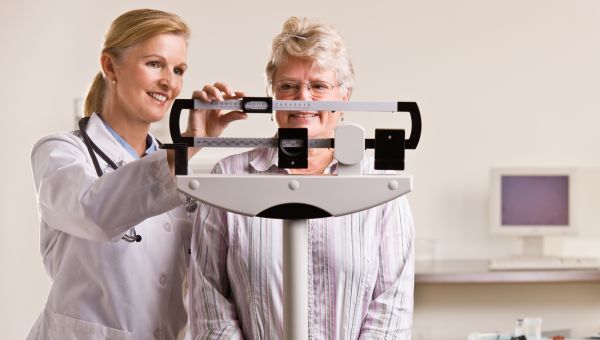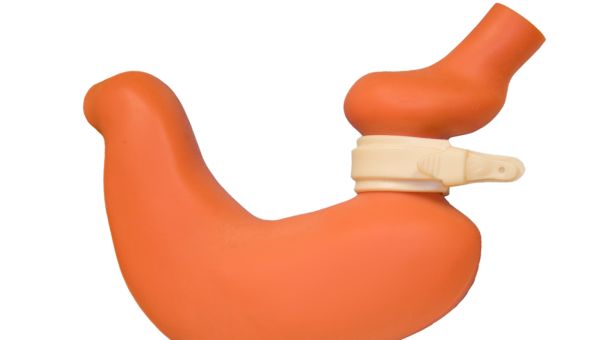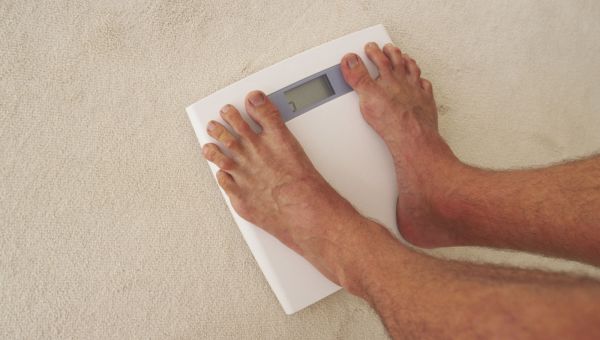4 Most Common Types of Weight Loss Surgery
Find out what to expect from bariatric surgery, including gastric bypass, lap band, sleeve gastrectomy and intragastric balloon, if you just can’t lose weight.

If you’ve done your best to exercise regularly and stick to a healthy diet but still have a substantial amount of weight to lose, weight loss surgery may be for you. Bariatric surgery is a catchall term for operations that limit stomach size and/or food absorption. If you have a body mass index (BMI) of 40 or greater, you could be a candidate.
A 2013 study in BMJ showed that surgery led to greater weight loss than non-surgical fixes like diet, exercise and weight loss medications. Type 2 diabetes and metabolic syndrome were also more likely to go into remission. Click through to learn more about which type of weight loss surgery may be right for you.

Before Surgery: Preparation
To prep for surgery, candidates often undergo an evaluation to ensure that they understand the process, are mentally ready for the procedure and are prepared to accept the dietary and lifestyle changes needed post-surgery to maintain weight loss. They must also have a support system in place to help them stay on track.
Most bariatric surgeons prescribe a high protein liquid diet for one to two weeks before they operate. This jump-starts weight loss and reduces the size of the liver, allowing the surgeon to operate more easily.
How much will it cost? Weight loss surgery runs between $20,000 and $25,000, on average.

After Surgery: Time Off to Heal
After weight loss surgery, many people experience discomfort. Hospital stays are usually one to two days. You’ll probably be on a liquid diet for a few weeks to allow your stomach to heal.
A typical weight loss is about a quarter of your body mass, but it depends on the type of surgery and a number of variables, including your age, weight before the surgery, diet and exercise levels and any preexisting health problems. While weight loss can be significant, it’s not permanent unless you do your part: You’ll still need to follow a portion-controlled, healthy diet and exercise regularly to prevent weight from creeping back.

The Roux-en-Y Gastric Bypass
How it works: Have you ever taken a highway bypass around a big city? In a gastric bypass, your food is the car and your stomach is the city. First, doctors staple your stomach into two sections. They then connect the portion that holds food to your small intestine. You’ll eat less food and absorb less food that can be stored as fat.
Good to know: In the first year patients lose about 10 to 20 pounds per month; weight loss then drops off over time.
Tip: Gastric bypass can cause vitamin/mineral deficiencies, according to Francis Teng, MD, of MountainView Hospital in Las Vegas. Daily supplements will be required.

Gastric Banding
How it works: Also known as the Lap-Band (the brand name for the device; Realize Band is another), with this procedure your surgeon places a silicone band around the top of your stomach to, in effect, make it smaller. There’s less space to hold food, but the band makes you feel full faster and reduces hunger pangs. This procedure does not cause any malabsorption, which means the food you eat gets digested normally.
Good to know: The gastric band procedure is reversible. Only small incisions are needed since it’s done through laparoscopy.
Tip: The band may have to be adjusted from time to time, according to Curtis Peery, MD, of Sanford Health.

Laparoscopic Sleeve Gastrectomy
How it works: While the previous procedures involve artificially reducing stomach size, a sleeve gastrectomy does it for real. In this irreversible procedure, about 80 percent of the stomach is removed, leaving the remaining stomach about the size and shape of a banana. Weight loss occurs because you can't eat as much; your appetite is also suppressed.
Good to know: Conditions such as type 2 diabetes significantly improve quickly.
Tip: This procedure is most used for patients with very high BMIs; it often requires a second operation like a gastric bypass or duodenal switch.

Intragastric Balloon
How it works: The intragastric balloon falls somewhere between lifestyle changes and other procedures on this list. A balloon is placed in the stomach and then filled with a saline solution, creating a feeling of fullness so that you eat less. Patients learn how to make diet and behavioral changes while the balloon is place, typically for about six months.
Good to know: If you don’t want to commit to surgery, this is the procedure for you. In 2017 the FDA received reports that some brands of balloons have either overinflated or have led to acute pancreatitis.
Average weight loss is 15 to 20 pounds.
Tip: You must be ready to adapt to diet and lifestyle changes in order to maintain weight loss when the balloon comes out.
More On


video

article

slideshow


video


video
